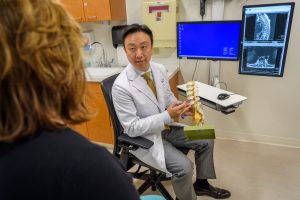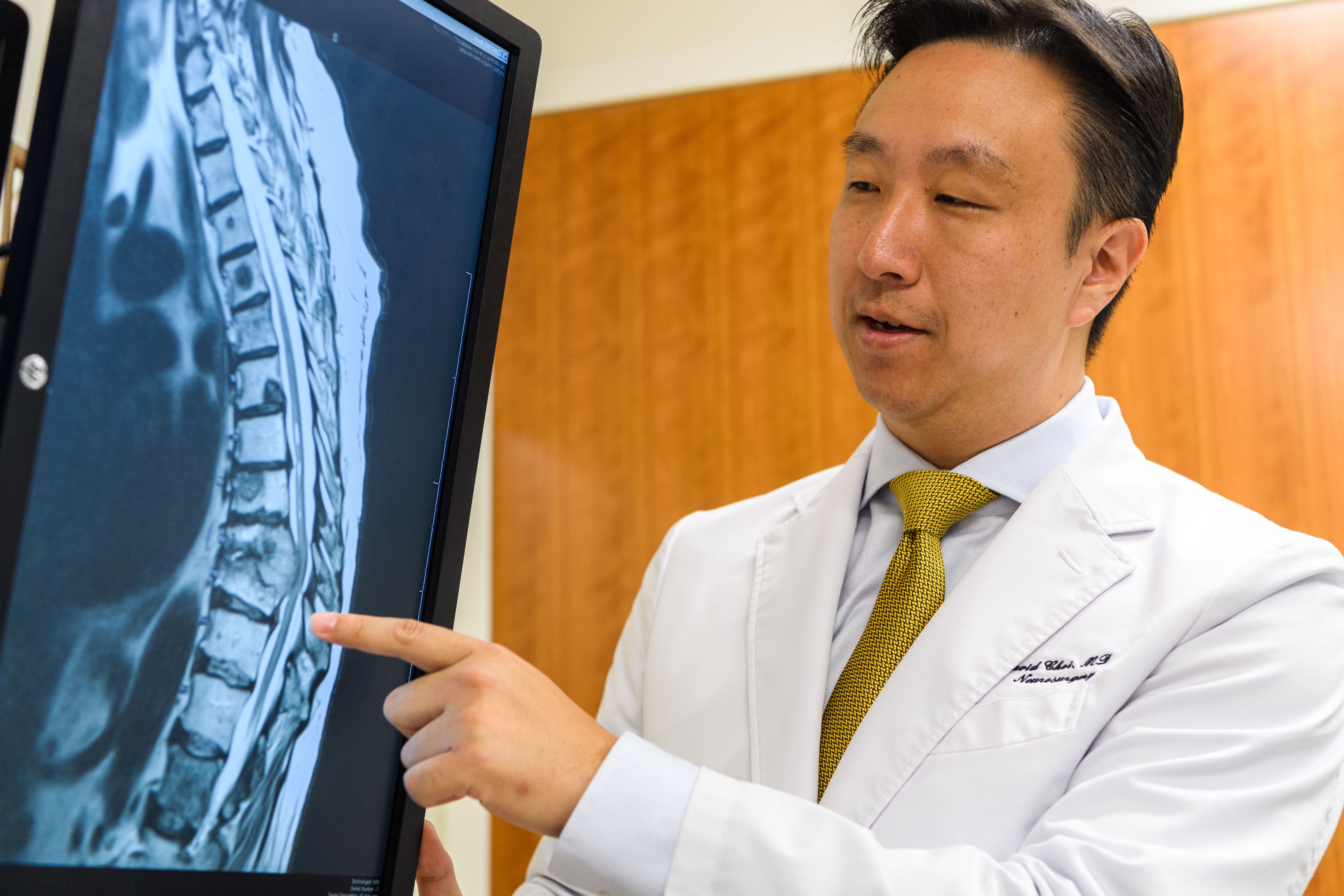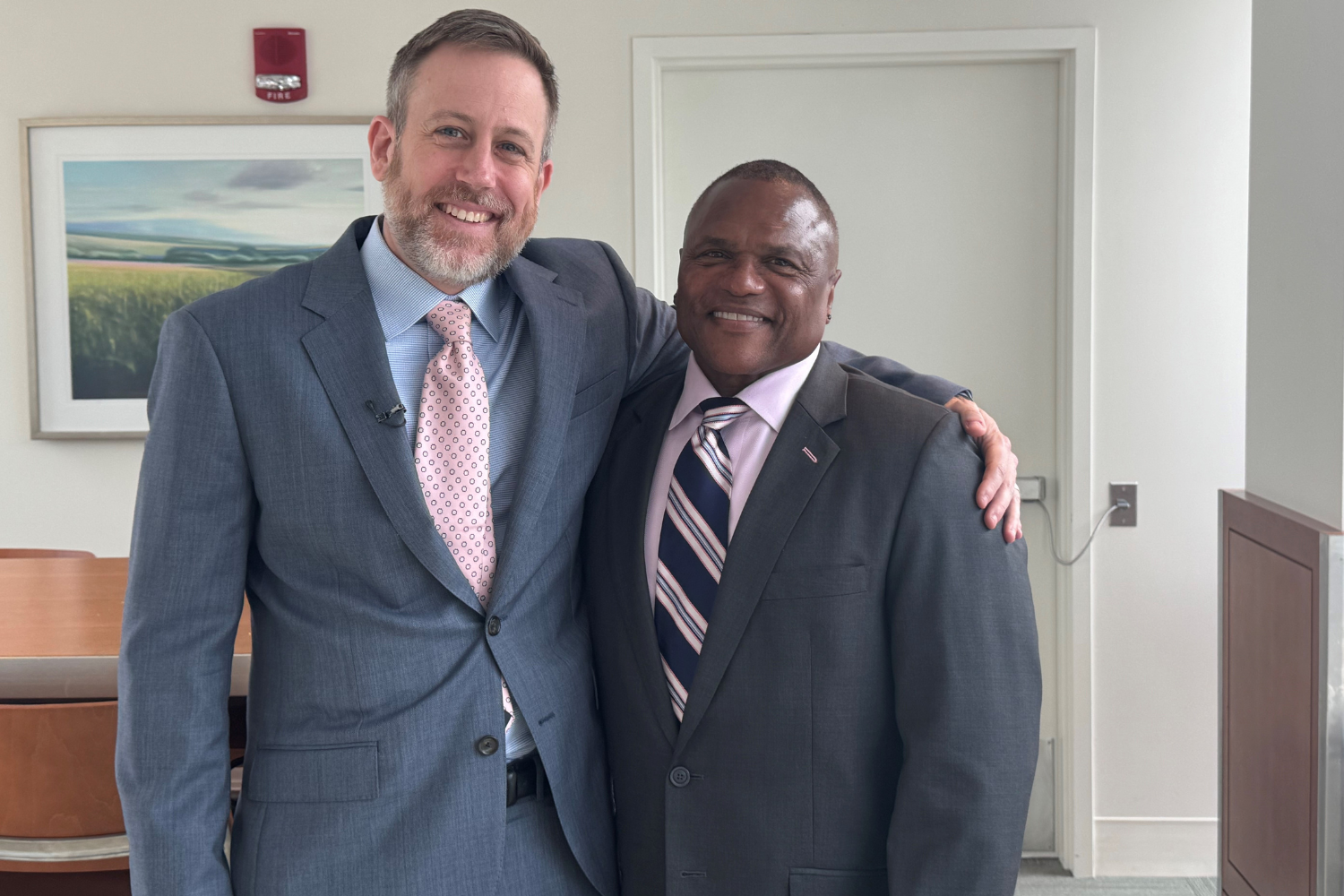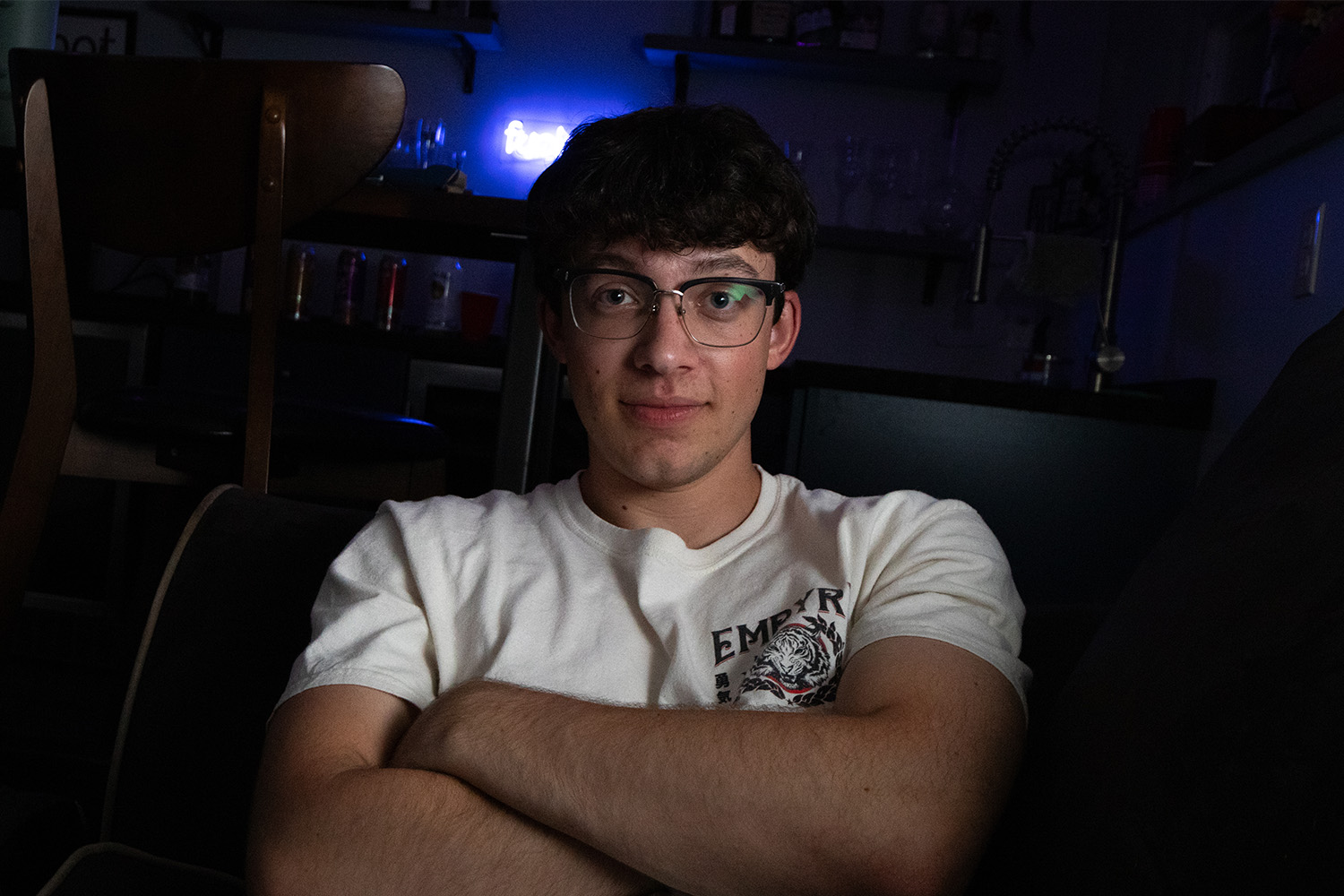UConn Health has the only neurosurgeon in Connecticut who is fellowship-trained in spinal oncology surgery.
The arrival of Dr. David Choi enables patients who already are receiving oncologic care in Connecticut to stay in the state for their spinal care, rather than seek out a spinal oncology surgeon in New York or Boston.
“This ensures even better collaboration among all the team members to provide the most effective and coordinated care for each person,” Choi says.

UConn Health is expanding its offerings in the realm of neurosurgical care. It’s the vision of Dr. Ketan Bulsara, chief of the Division of Neurosurgery, to make UConn a world-class destination center. The addition of Choi, a product of an elite complex spine surgery fellowship at Brown University, is a cornerstone of that vision.
“Dr. Choi’s expertise adds to the excellent work that was already being done at UConn Health in collaboration between neurosurgery and orthopedic surgery through our comprehensive spine center,” Bulsara says. “His level of training allows him to offer a unique perspective and potential treatment options for spine/spinal cord tumors.”
Choi’s expertise adds to a multidisciplinary team of spine surgeons at UConn Health.
“The recruitment of his talent and clinical expertise buttresses the vision of our comprehensive spine program,” says Dr. Hilary Onyiuke, director of UConn Health’s Comprehensive Spine Center.
Spinal tumors can metastasize to the spine or originate in or around the spinal cord, or in the vertebrae.
“If a tumor occurs in or around the spinal cord, it may compress either the cord or nerve roots that exit the spinal cord. This will cause neurologic deficits, such as arm and leg weakness, or bowel and bladder dysfunction,” Choi says. “If a tumor occurs in the bone, it may cause the bones to fracture, causing the spinal column to partially collapse. In extreme cases, fractured pieces of bone may affect the spinal cord and cause similar neurologic deficits.”
The range of treatment options includes stereotactic radiosurgery, rods and screws to stabilize broken vertebrae due to tumor infiltration into bone, and removal of the tumor away from the spinal cord in order to decompress neural structures. Consistent with UConn Health’s mission, treatment plans are individualized to ensure the best outcomes.
“An entire team is involved when treating spinal tumors,” Choi says. “Surgery itself is only a small part of the process. In some cases, tumors cannot be entirely removed, requiring further treatments after surgery, such as chemotherapy and/or radiation therapy, coordinated by oncologists and radiation oncologists. In cases of metastatic tumors, other surgical tumor specialists may continue their involvement in treating the primary tumor.”
Choi says the opportunity to shape spinal oncology care at UConn Health is what drew him to Farmington.
“Few physicians will have a chance to help to develop a new division in a well-established institution,” he says. “UConn Health is poised to become a leading destination center for a wide variety of neurosurgical conditions, and spinal oncology is a field that will serve our community and state well.”



